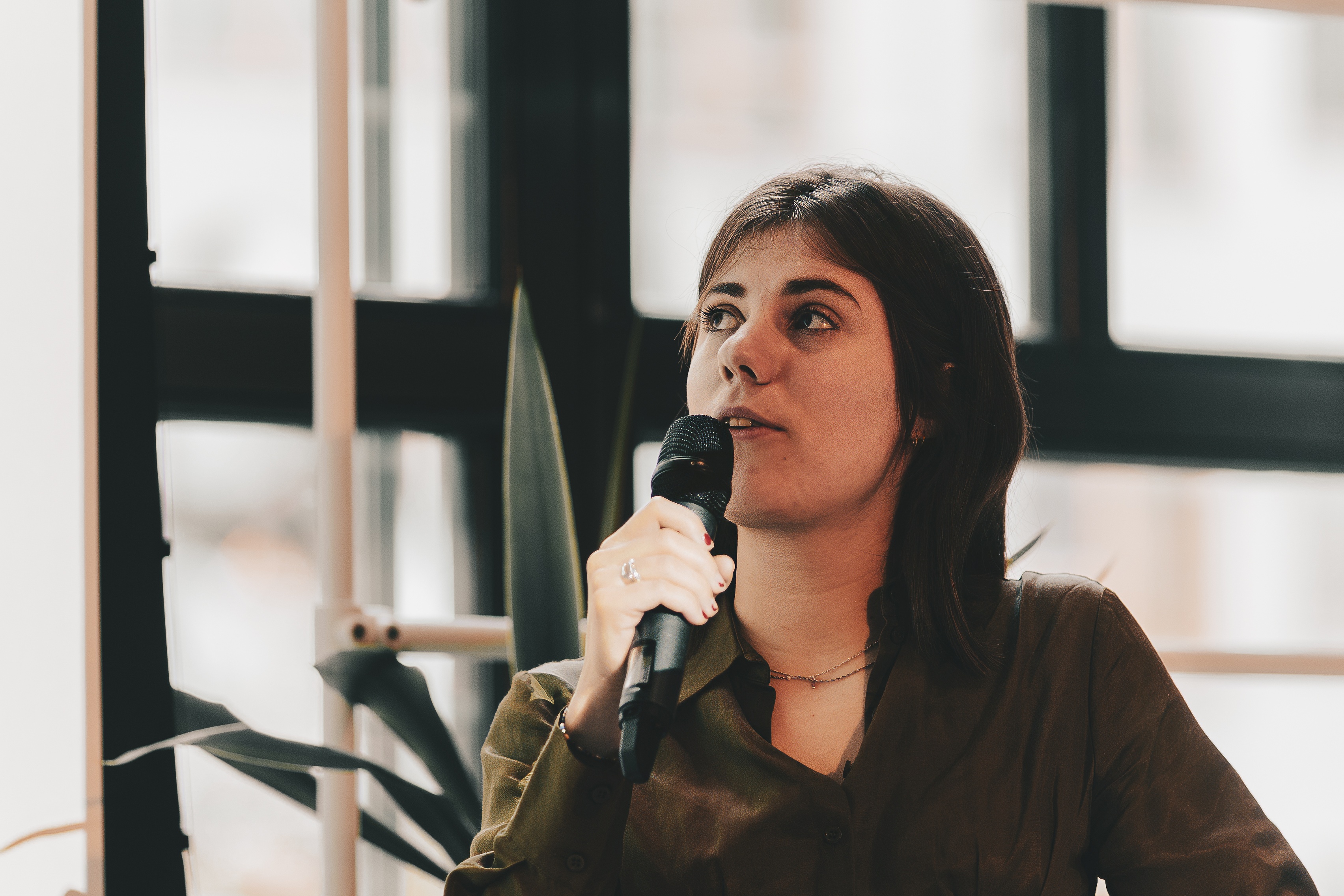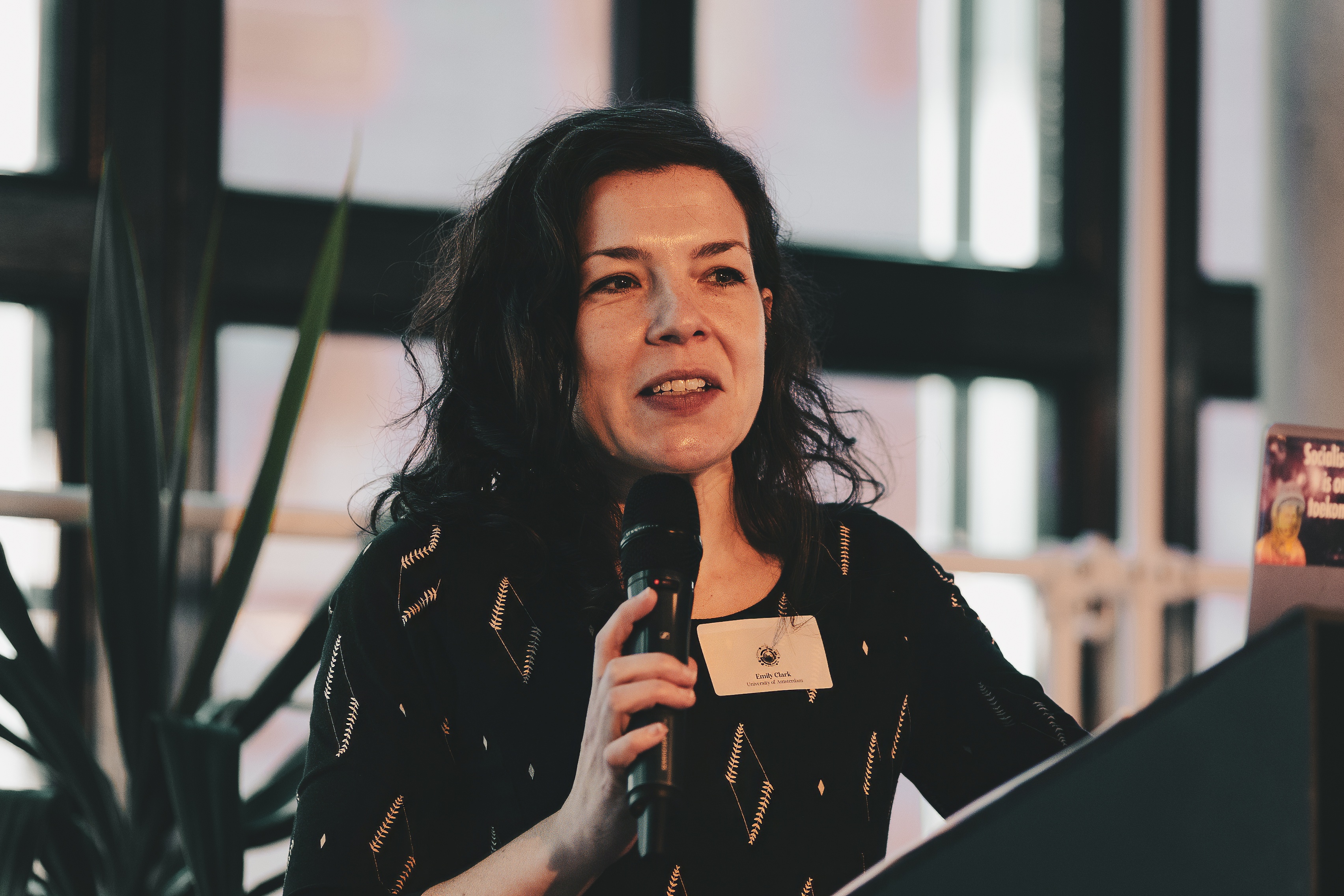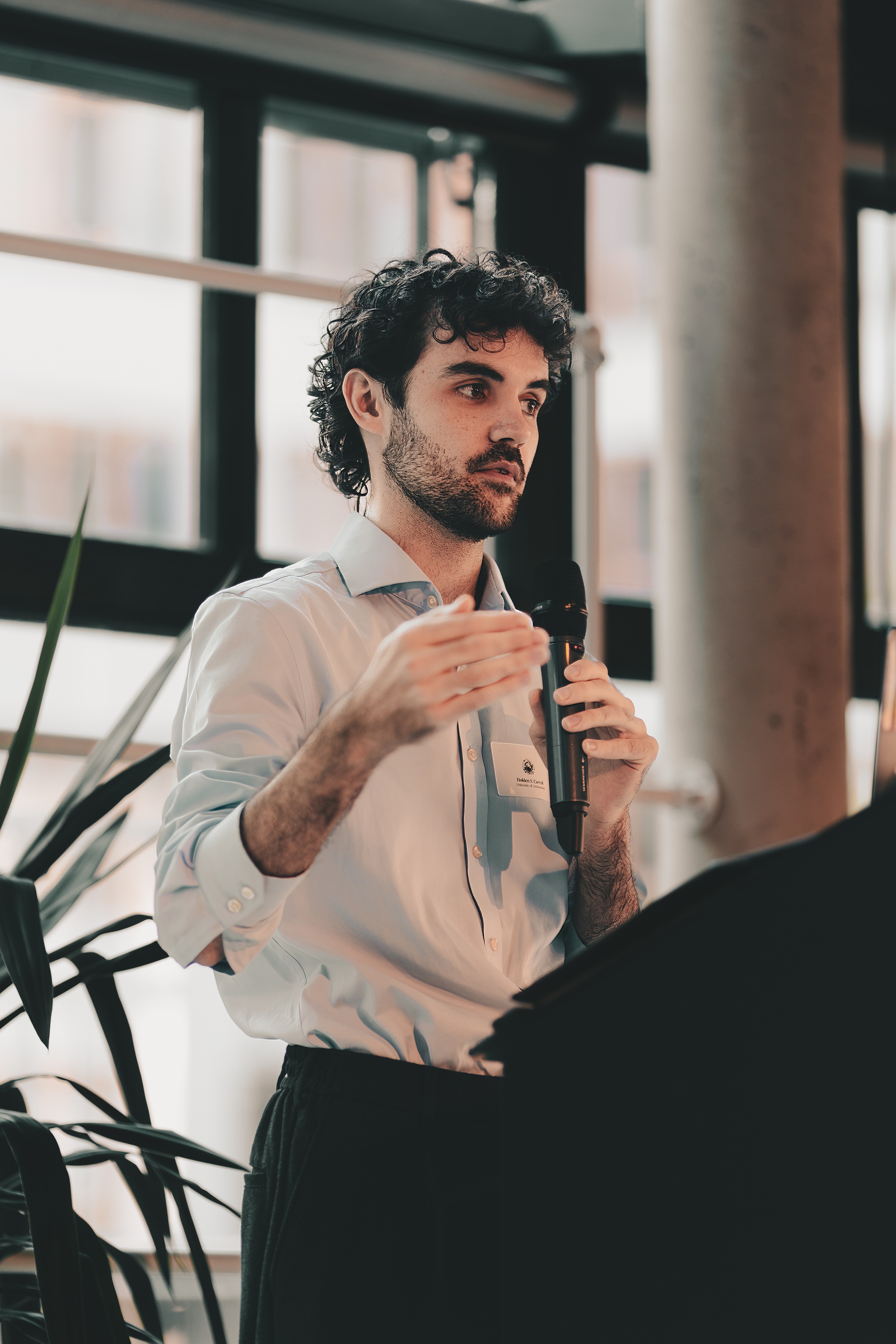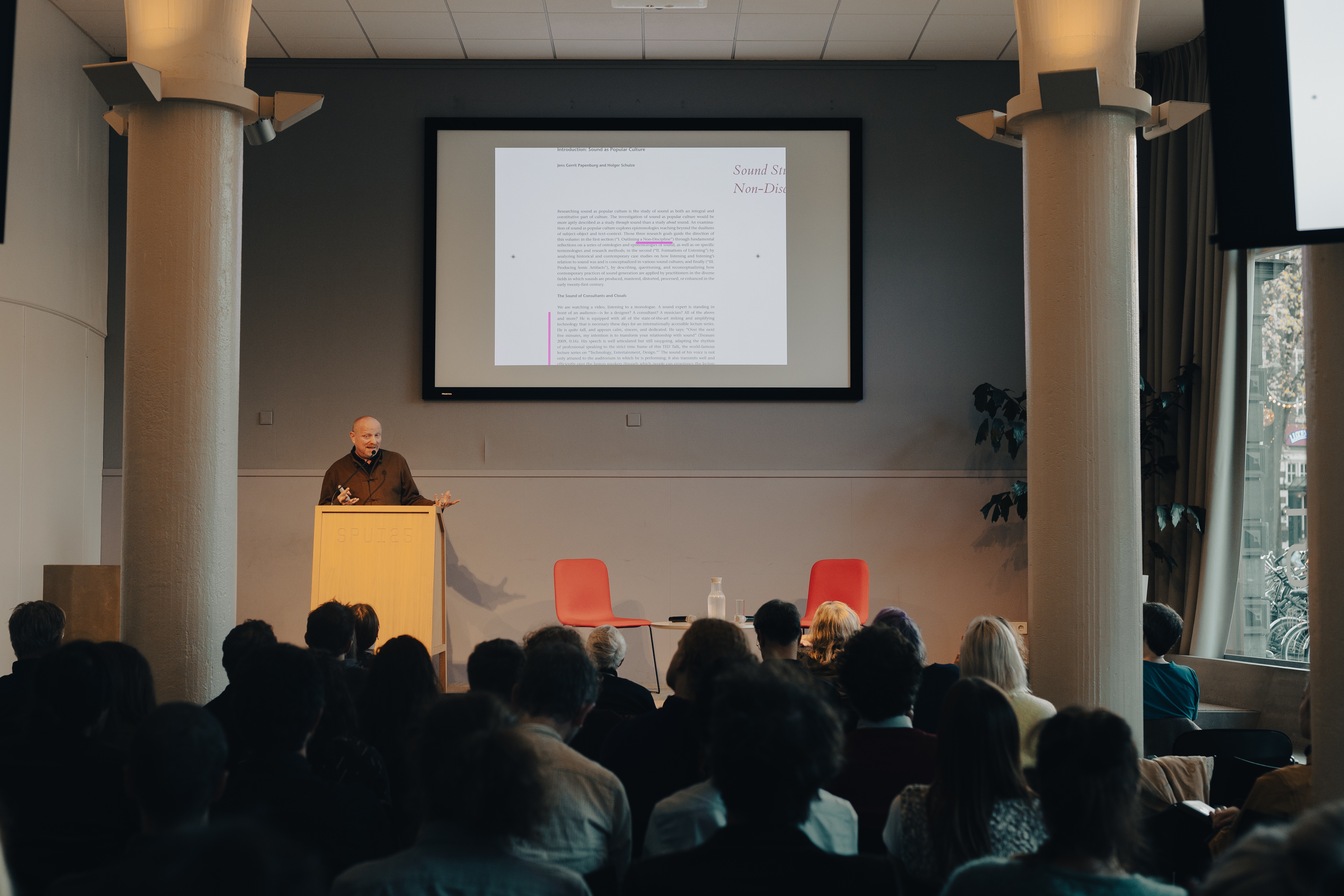Sound Affairs - Sonic Histories of Foreign Relations, 1700-1990 (Inaugural workshop)
On October 25, 2024, a group of scholars from the Netherlands and beyond gathered in Amsterdam for an engaging workshop exploring innovative approaches to studying sound, media, and cultural history. The day-long event combined theoretical presentations with hands-on exploration of digital methods, culminating in a public evening lecture at Spui 25.
The first session featured three inspiring presentations that traced different approaches to studying sonic media, both today as in the past. Following each presentation, we heard illuminating discussions with specialists Carolyn Birdsall (UvA), Rebekah Ahrendt (UU), and Holger Schulze (UCPH).
Loren Verreyen opened the morning session with an innovative presentation on analyzing podcasts at scale. Using true crime podcasts as a case study, and based on a sample of 1,1 million English-language podcasts, Verreyen demonstrated how digital methods and automated transcription can help researchers understand patterns across large collections of audio content.

Emily Clark followed with a stimulating examination of postwar Dutch folk song recordings, held at the Meertens Institute, exploring how these sound archives were formed, what they left out, and how they were later inventoried. Her research highlighted how sound recordings have historically been used in processes of knowledge formation to construct and understand cultural identities and (colonial) self-other distinctions.

Holden Carroll concluded with a fascinating look at UNESCO’s uses of radio in the post-war period. His presentation examined how the organization deployed radio broadcasting as a tool for international development and peace-building, revealing the complex relationship between sound, power, and global politics.

The afternoon featured an interactive workshop where participants explored practical challenges in sonic research. Divided into smaller groups, attendees discussed methodological approaches to working with historical sound recordings and strategies for finding sonic references in textual sources when recordings aren’t available. The workshop also examined emerging possibilities offered by generative AI and audio restoration software, prompting rich discussions not only about both the opportunities and limitations of these new tools, but also what future sonic technologies and software might afford.
The day concluded with the inaugural lecture of the “New Directions in Sonic History” annual lecture series at SPUI25, delivered by Professor Holger Schulze of the University of Copenhagen. Schulze provided a comprehensive overview of Sound Studies’ evolution since the turn of the century, while acknowledging its deeper roots in artistic and scholarly work dating back to the 1970s. Speaking to a packed SPUI25, Schulze emphasized recent efforts to decolonize sound studies and investigate aural diversity beyond the West. A striking revelation from his talk was the deconstruction of “normal hearing,” noting that only 17 percent of people have what is traditionally considered “normal hearing” – a finding that has profound implications for how we approach sonic research.

Several themes emerged consistently throughout the day, including the importance of historical contextualization in sonic research, the potential of digital tools to enhance our understanding of sound archives, and the need to recognize diverse listening experiences and perspectives. Old questions in the field reemerged: is it possible to capture and/or reconstruct a “period ear” and how did similar sounds sounded to different people in different places in different times? Each of these sparked discussion about ongoing challenges and potential paths forward for the discipline. From folk songs to radio broadcasts, from podcasts to analytical frameworks, the event demonstrated the richness and complexity of studying sound as a lens for understanding culture, society, and history.
These and other questions will be revisited in future meetings organized by the “Sound Affairs” project team.
Enjoy Reading This Article?
Here are some more articles you might like to read next: